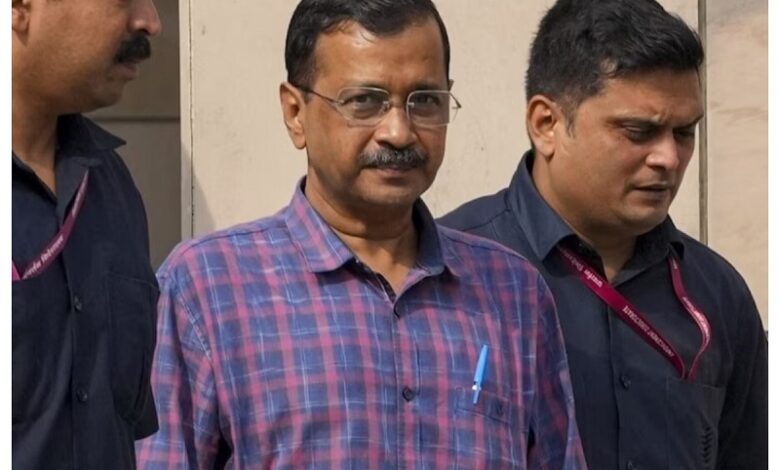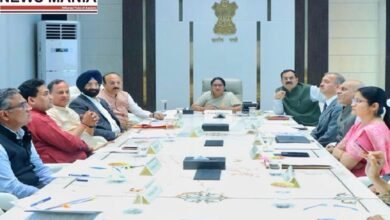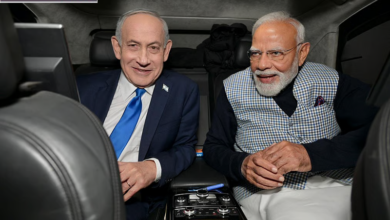
Minutes after the Supreme Court refused an early hearing of Kejriwal’s plea challenging his arrest, the Delhi Rouse Avenue court on Monday sent the Delhi Chief Minister to judicial custody till April 23.
The development came after the top court postponed the plea of Kejriwal on the week commencing from April 29. The top court further asked the Enforcement Directorate (ED) to file its response on or before April 24.
Arvind Kejriwal Hearing In Supreme Court
Senior advocate Abhishek Manu Singhvi appearing for Kejriwal told the Supreme Court that the arrest was made to disable him from campaigning.
The apex court’s decision came in response to the plea filed by Delhi Chief Minister Arvind Kejriwal challenging his arrest by the Enforcement Directorate (ED) and his subsequent remand in connection with the alleged now-scrapped Delhi liquor policy case.
The AAP supremo had moved the top court challenging a Delhi High Court judgment that dismissed his plea on April 9 and rejected his argument of political vendetta amid the upcoming Lok Sabha election. The Delhi Court on April 1 sent Kejriwal to judicial custody till April 15 in the excise policy scam case.
No Delhi High Court Relief For Kejriwal
Mr Kejriwal has called his arrest an “unprecedented assault on the tenets of democracy” based on “free and fair elections” and “federalism”. The AAP has denied all charges and described the case against its National Convenor as “political vendetta” meant to destroy the party before the election.
“Political considerations can’t be brought before a court of law… the matter before this court is not a conflict between the central government and Arvind Kejriwal. It is a case between Kejriwal and ED.”
Meanwhile, in a related hearing, a Delhi court extended Mr Kejriwal’s judicial custody till April 23.
The court said the ED had submitted enough material to back its claim – that the Chief Minister was allegedly involved in forming the now-scrapped policy and demanding bribes of ₹ 100 crore.
In the High Court Mr Kejriwal argued, vehemently, against his arrest, pointing to the timing of the federal agency’s action; the AAP boss, a vocal critic of the ruling BJP, was taken into custody hours after he was refused protection. That was after he skipped multiple summons. alleging a political conspiracy.Eventually Mr Kejriwal’s arrest was ruled valid and his plea dismissed.
Mr Kejriwal had approached the Supreme Court after the High Court turned down his appeal, but had to wait because the top court said it would not constitute a special bench to hear him; the court was closed (for Eid) when the AAP leader approached on Thursday, April 10. Friday was a holiday too.
Arvind Kejriwal And Alleged Liquor Policy Scam
A defiant Mr Kejriwal became the first sitting Chief Minister to be arrested; weeks earlier another opposition leader, Jharkhand Mukti Morcha’s Hemant Soren, narrowly avoided that distinction by resigning minutes before his arrest by the ED, in an unrelated money laundering case.
With reference to the alleged liquor policy scam, the ED has also arrested two of Mr Kejriwal’s colleagues; his ex-deputy, Manish Sisodia, was arrested in February last year and Rajya Sabha MP Sanjay Singh in October. Mr Singh was granted bail this month by the Supreme Court, which asked the ED some tough questions, including asking why he had been jailed for six months without a trial.
The top court also wanted to know why the agency had failed, so far, to recover any of the alleged bribe money. “Nothing has been recovered… there is no trace (of money allegedly received by the AAP as bribes for allotting liquor permits to the ‘South Group’)…” the court remarked.
The ED has repeatedly claimed the Aam Aadmi Party conspired to receive ₹ 600 crore in bribes – including from a ‘south group’ led by opposition leader K Kavitha of the Bharat Rashtra Samithi, who has also been arrested – for allotment of retail and wholesale liquor permits for the national capital.
(This story has not been edited by News Mania staff and is published from a Media Release)






